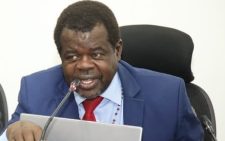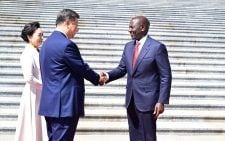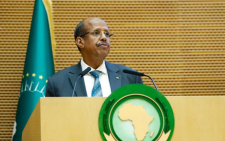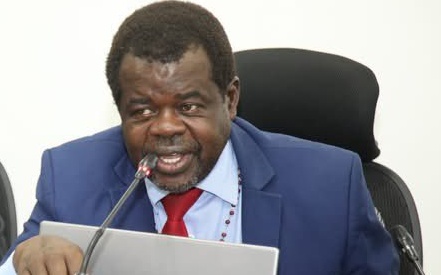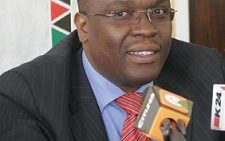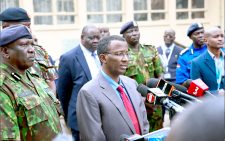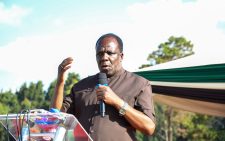Court strikes out evidence in Sh3.5b Anglo Leasing case
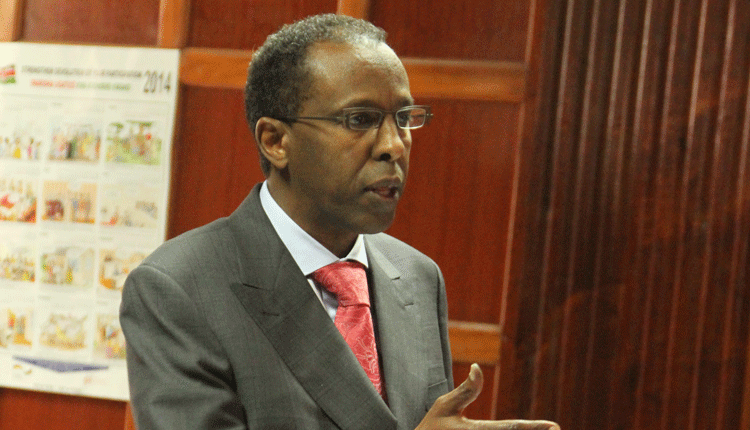
An Anti-Corruption court yesterday ruled that part of the evidence in the Sh3.5 billion Anglo Leasing case failed to meet the integrity test.
The contested evidence in the case facing former government officials and businessmen was struck out on the grounds of glaring legal anomalies which a trial magistrate Felix Kombo said raised “curious” questions of non-compliance.
“It is expected that documents meet the admissibility criteria, a contention against such by the prosecution cannot hold,” ruled Kombo.
Kombo said he was upholding an objection that was raised against the admission of the evidence by defence lawyers Ahmednasir Abdullahi, Edward Oonge and Sadia Carren, who had cited legal flaws in the acquisition, retention and manner of presentation of the case documents and argued that the prosecution “failed to follow legal rules.”
The lawyers had submitted that the documents were “illegally obtained” through a flawed Mutual Legal Assistance (MLA) procedure and would be prejudicial to their clients.
Abdullahi had also disputed the authenticity of the evidence tabled by the prosecution saying that due process was not followed when obtaining the documents from overseas.
In his ruling, Kombo said proper channels in terms of remitting the evidence from Switzerland were not followed in securing the documents.
“It is even a matter of more curiosity that it took three years to get the said documents which are public documents,” he said.
The court said the integrity of the evidence documents is wanting because they were remitted from Switzerland where they had stayed in a private law firm for three years before being transmitted to the Kenyan Attorney General.
Kombo noted that the prosecution failed to follow laid down procedures required for certification in regard to presentation of secondary evidence.
He explained that supposed photocopies of original documents that the prosecution would have relied on fell below “the certification criteria” and at the same time the State failed to lay the basis of presenting them as secondary evidence.
The magistrate wondered why the original documents, which are public documents, “cannot be traced at the source”.
“Why is it difficult to obtain these documents for certification,?” the magistrate posed.
He said the investigating officer should have merely walked to the Office of the President to get the documents, which were inter-departmental correspondence, if they indeed exist.
Vague certificate
He was categorical that the prosecution cannot be allowed to present uncertified copies of the documents.
“They must meet the minimum requirement of certification,” he said.
Out of the 43 documents that had been contested, only three met the threshold of admissibility.
“The objection fails in relation to the entirety of documents obtained through MLA request to the United Kingdom and any copies thereof that form part of the objection by defence including any electronic documents that are unsupported by a certificate in terms of section 106(b)(4) of the evidence act,” ruled Kombo.
Abdullahi, who represents Rashmi and Deepak Kamani in the case, had opposed the admission of the documents as evidence in the case, saying Jacques Rayroud, the Swiss prosecutor, had given a vague certificate and not a witness statement on the transmission of the documents obtained through the Mutual Legal Assistance.
The documents include payment vouchers, internal memos from then Permanent Secretary Dave Mwangi to then minister Chris Murungaru, letters from PS Finance to the Attorney General, and other documents from Commissioner of Police and National security PS.
The case is at its tail end with the remaining witness being the investigating officer Ignatius Wekesa who has given part of his testimony but is yet to conclude it.
He had produced 146 documents to be used as evidence in the case but the defence objected to 43 documents.
During previous hearings, Wekesa told the court that they were not able to trace a mysterious foreigner who allegedly executed the Anglo Leasing contract that led to the loss of billions of shillings.
He said that documents in relation to the project were always being signed by one Brian Mills but they had never been able to locate him.
In the case, businessman Rashmi and Deepak Kamani are charged alongside former government officials Joseph Magari, Joseph Onyonka and Dave Mwangi.
They have denied charges of conspiracy to defraud the government through the Anglo Leasing contract.
